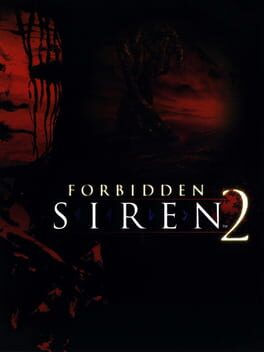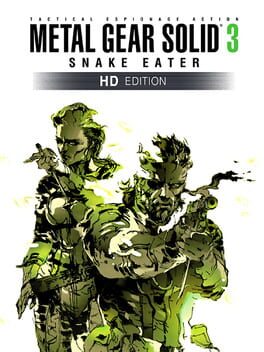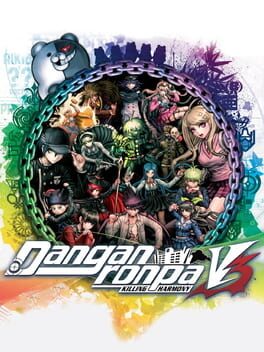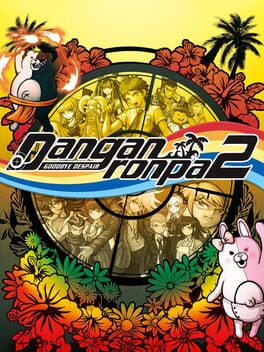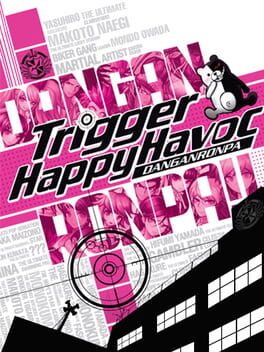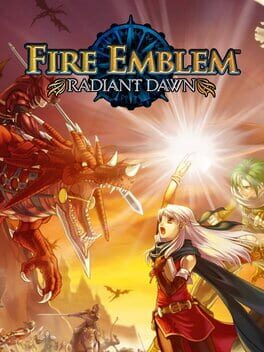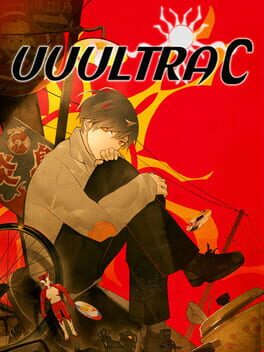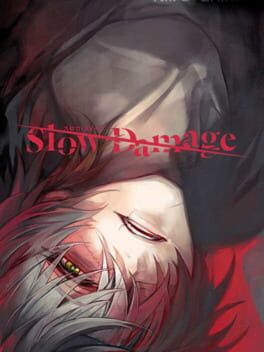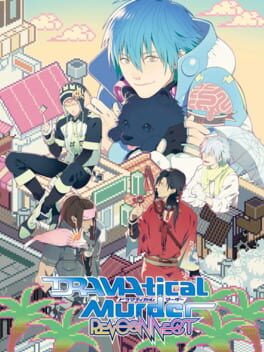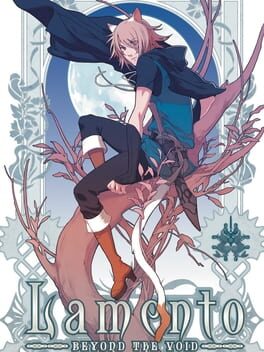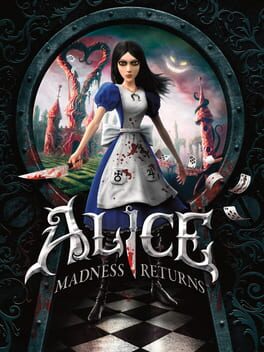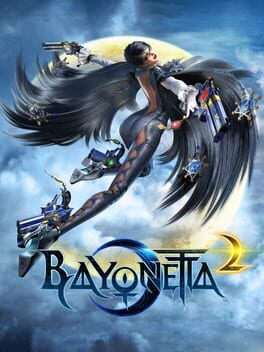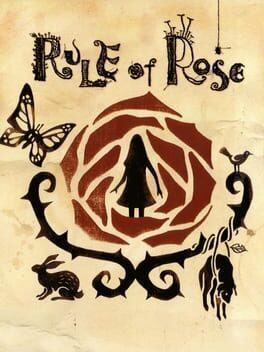2006
I love Siren, but I think anyone who shares that love and reveres it as a cult classic will admit that part of why it's so terrifying is often because of its clunkiness and cryptic mission requirements-- it's a game in which one wrong step WILL get your ass beat, and this can genuinely lead to you being paralyzed with fear. This is such a fascinating sequel to me, then, because it's so polished compared to the original Siren, to an extent where I earnestly feel as if it's one of the most well-made PS2-era survival horror games I've played. This does make it a bit less terrifying. First of all, playable characters in Siren 2 seem to have useful weapons more readily available, and from what I noticed, there's less shibitos where running into them is a death sentence (ie. pistol wielding ones), and therefore you can sightjack and stealth a bit less. On top of this, I do think that the Yamibito and Yamirei are less scary than the actual shibito, and they replace them entirely halfway through the game. Maybe this is unpopular, but the Yamibito especially lose their edge once you realize you can just run towards them with your flashlight on and lay into them. Compare this to late-stage shibitos from the first game, which are horrifying and disgusting... not quite the same. Though I do think the designs for the evolved Yamibito are incredibly uncanny. Having said all this... Siren 2 is still scary as shit, lol. These games are so good at just feeling evil, like something you shouldn't be witnessing.
Besides those minor complaints, though, I think this game is fantastic. It has an incredibly eerie and melancholic atmosphere (as to be expected of a Toyama game), and, similar to its predecessor, really neat folklore. Its plot is far more decipherable on a moment-to-moment basis than Siren, while still maintaining that mysterious Siren fever dream storytelling. The settings in the game are memorable as well, with the Bright Win ship, the apartment complex, and the amusement park sticking out as some pretty scary and unique areas. I don't know if it will haunt me as much as the first game (Tomoko Maeda and Miyako's respective fates and, what I consider to be the scariest survival horror moment for me, Harumi Yomoda's Day 2 missions, come to mind), though it DEFINITELY has its moments, but I enjoyed actually playing it more, fwiw. And you can tell they had so much fun making this! All in all, it's another incredible showing from the Siren team-- it's a shame they don't make these anymore!!
My favorites were Ichiko, Akiko, Ikuko, and Soji. I love Soji! I think I would behave the same way if I washed up on Yamijima (bumbling around and whining, confused).
Besides those minor complaints, though, I think this game is fantastic. It has an incredibly eerie and melancholic atmosphere (as to be expected of a Toyama game), and, similar to its predecessor, really neat folklore. Its plot is far more decipherable on a moment-to-moment basis than Siren, while still maintaining that mysterious Siren fever dream storytelling. The settings in the game are memorable as well, with the Bright Win ship, the apartment complex, and the amusement park sticking out as some pretty scary and unique areas. I don't know if it will haunt me as much as the first game (Tomoko Maeda and Miyako's respective fates and, what I consider to be the scariest survival horror moment for me, Harumi Yomoda's Day 2 missions, come to mind), though it DEFINITELY has its moments, but I enjoyed actually playing it more, fwiw. And you can tell they had so much fun making this! All in all, it's another incredible showing from the Siren team-- it's a shame they don't make these anymore!!
My favorites were Ichiko, Akiko, Ikuko, and Soji. I love Soji! I think I would behave the same way if I washed up on Yamijima (bumbling around and whining, confused).
after a bunch of dlc minisodes that are pretty silly and ephemeral... why are these so good? like, i like rain code, i think it's a good game, but imo these are kinda better than the actual base game. very tender, gentle, kind additions to vivia and yakou as characters with yakou especially getting some needed and pretty touching closure.
This review contains spoilers
A school made just for us.
This game left me feeling so conflicted after I first finished it years ago. When I was younger, I spent much of my time longing for some sort of fantastical adventure, an escape. I was lonely and sickly, so I threw myself into every book or video game wholeheartedly, eagerly imagining what it would be like to be in the protagonist's shoes, to live in a world different from my own. Daydreaming about something more exciting than the mundanities of my day to day life– To me, fiction was, in many ways, more real than the world around me. So, when I first reached the revelations at the end of this game, it felt like a mirror was being held up to me, it made me uncomfortable and hurt. Like a lot of people, I felt as if I was being attacked for daring to care. Well, I definitely don't feel that way anymore. My opinion on Danganronpa V3’s finale has (obviously, with my 5-star rating) done a complete 180. Upon replay, I’ve realized how well-structured and thoughtful this game is, and it’s become a personal favorite.
V3 is a gentle, poignant, and layered game, both in terms of its actual moment-to-moment story and what it is trying to say with its metanarrative. Firstly, this is the best Danganronpa game in terms of the actual meat of the product. The character writing is a notable step up from previous games, with every character being likable and fleshed out in their own right. Even larger-than-life characters such as Miu contain a depth that others of the same ilk from previous games, such as Hifumi, never had. V3’s main cast are easily some of the best characters of the franchise– Shuichi, Kaede, Maki, Kaito, and Kokichi are great, and the emotional core of the “training trio” is felt throughout the game, making the later chapters especially powerful. The cast deals with the loss of their friends in a deeper way as well, and their lingering grief makes V3 haunting even before the final truth comes out.
The class trials are great as well, with only Chapter 3’s being somewhat messy. They're all more complex than in previous games, and despite the longer length of the trials, they don’t drag to me. Each trial also ties in to the overarching themes of truth and lies, what is real and what is not. While it may seem obvious that a mystery game’s cases will deal with, well, the truth, I think V3 explores this in interesting ways. Of course, there's the obvious addition of lie bullets, allowing Shuichi to commit perjury when he needs to move the trial along, but it goes beyond that. Chapter 1 is a good example of this, with Kaede’s unreliable narration masking the fact that she had carried out the murder, with her true goal being to expose the mastermind. Oftentimes, the motives themselves tie directly into the theme of subjective truth. Kirumi is willing to sacrifice the few for the many, and to her, the truth is that this must be done to save her country, though she had been a loyal friend just days before. Gonta weighs the soul-crushing “truth” of the outside world with the already bleak environment his friends are in, and decides they’d be better off dead than pursuing the truth. On top of this, the mechanics of the trial are improved as well, with the minigames actually being consistently fun (a miracle). The new nonstop debates, Mind Mine, Psyche Taxi, and even Hangman’s Gambit are a vast improvement on previous games. Like, I love Hajime, but snowboarding in his mindscape is torture; meanwhile, Psyche Taxi is a blast.
As usual, Masafumi Takada does a phenomenal job with the soundtrack (I think V3 is his finest work with the series for sure). I really don’t think the game has a single bad track. Each song suits the atmosphere perfectly– “Nightmare in the Locker” and “Rise of the Ultimates” creates dread at eerie moments, “Heaven of Almost Hell” builds melancholy gorgeously, “Darkness Time” is the essence of night’s mystery. “Beautiful Lie” is a beautiful lie, with its nostalgic melody harkening back to school days that never were. It’s great.
It’s hard to talk about my favorite parts of V3 without discussing the ending and its implications. I used to think it came out of nowhere, but I can’t believe I ever used to think that because there’s literally heaps of foreshadowing towards it, and everything comes together wonderfully. Truth versus lies, reality versus fiction… The whole game, these concepts loom over the player. Kaede, knowing she is probably marching towards her execution, tells Shuichi to always pursue the truth. Kokichi, the embodiment of a lie, misleads the group incessantly. He wants to convince everyone, perhaps even himself, that he loves the killing game, but he wants to end it more than anyone. Kaito, trapped and gravely ill but wanting to make amends with his closest friend, believes Shuichi is capable of reaching something beyond the truth.
But what lies beyond the truth? For a while, Shuichi is convinced it is hope, a theme incredibly interwoven with the previous entries. However, what’s beyond the “truth” is something deeply horrifying. Fabricated lives. To be the victim of decisions made by the you that you no longer are. The you that, in your mind, you never were. Nothing about you is real, your existence is the ultimate lie. The person you viewed as a trusted friend now speaks to you coldly, regarding you as her creation. Narratively, I think this reveal is so chilling. A beautiful tragedy. The way it wraps up its exploration of truth and lies is incredibly touching. After all, if everything you know is a lie, isn’t that your truth? Yes, to the onlookers, your life may be fiction, but it is the truth to you. As Shuichi said, our pain is real. The group rejecting both hope and despair, refusing to participate in Tsumugi’s game, not giving the audience what they want, ending Danganronpa with their own hands… it’s insanely powerful. Going off script, defying the author one final time, is the ultimate liberation.
While I think V3 contains a lot of commentary on fan culture, I often see people claim that this game "hates" the previous entries and the series’ fans. No, I don't buy it. I think V3 fundamentally understands why fiction speaks to us, why we love it so much, why it's so powerful. Because of this, I think it cares deeply for the prior entries, which is why it needs to bring the series to an end. It's both a love letter to the series and a final goodbye– A way to end a series you put your heart into before it becomes meaningless muck, regurgitated over and over again like so many fictional endeavors eventually become (I mean, think of every TV show that drags itself out for years on end; you can feel the passion leaving as it drudges on). V3 doesn't want to suffer that fate.
I find it so fitting, then, that Shuichi tells Tsumugi once she’s lost that she never appreciated them or the power of fiction. Despite being the “author”, she had forgotten what makes fiction so capable of drawing in passion, so impactful. By ending it the way it does, it rejects "hope or despair" just as much as the characters themselves. It's choosing its own fate, ending on its own terms. So what if the characters and prior games were fictional? Fiction is beautiful. Fiction is compelling, thoughtful, capable of moving and inspiring, capable of changing your own perception of the world. And in its own way, fiction is truth. Does it matter whether Tsumugi was lying or telling the truth? The truth is up to you. It’s so heartbreaking to see, for example, Shuichi’s audition tape, but, well… so what? That Shuichi doesn’t define the Shuichi by the end of the game. Sometimes you must say goodbye, no matter how big or small: whether it be farewell to a fictional franchise that you love, farewell to the you you once were, farewell to everything you once knew as concrete truth. There’s beauty to be found even in the most twisted of scenarios– Maki, Shuichi, and Himiko preparing to step out of the dome, uncertain, but ready to mix their truth with the truth that lies beyond, the real and the fiction, is so perfect. I love this game so much. I don’t know what else to say. I could talk about it for hours, and there’s so much to read into and analyze. V3 is an unsolvable catbox of a mystery where truth and lies blend into one, and what truly matters is the emotion it brings forth. It’s, in of itself, another beautiful lie.
This game left me feeling so conflicted after I first finished it years ago. When I was younger, I spent much of my time longing for some sort of fantastical adventure, an escape. I was lonely and sickly, so I threw myself into every book or video game wholeheartedly, eagerly imagining what it would be like to be in the protagonist's shoes, to live in a world different from my own. Daydreaming about something more exciting than the mundanities of my day to day life– To me, fiction was, in many ways, more real than the world around me. So, when I first reached the revelations at the end of this game, it felt like a mirror was being held up to me, it made me uncomfortable and hurt. Like a lot of people, I felt as if I was being attacked for daring to care. Well, I definitely don't feel that way anymore. My opinion on Danganronpa V3’s finale has (obviously, with my 5-star rating) done a complete 180. Upon replay, I’ve realized how well-structured and thoughtful this game is, and it’s become a personal favorite.
V3 is a gentle, poignant, and layered game, both in terms of its actual moment-to-moment story and what it is trying to say with its metanarrative. Firstly, this is the best Danganronpa game in terms of the actual meat of the product. The character writing is a notable step up from previous games, with every character being likable and fleshed out in their own right. Even larger-than-life characters such as Miu contain a depth that others of the same ilk from previous games, such as Hifumi, never had. V3’s main cast are easily some of the best characters of the franchise– Shuichi, Kaede, Maki, Kaito, and Kokichi are great, and the emotional core of the “training trio” is felt throughout the game, making the later chapters especially powerful. The cast deals with the loss of their friends in a deeper way as well, and their lingering grief makes V3 haunting even before the final truth comes out.
The class trials are great as well, with only Chapter 3’s being somewhat messy. They're all more complex than in previous games, and despite the longer length of the trials, they don’t drag to me. Each trial also ties in to the overarching themes of truth and lies, what is real and what is not. While it may seem obvious that a mystery game’s cases will deal with, well, the truth, I think V3 explores this in interesting ways. Of course, there's the obvious addition of lie bullets, allowing Shuichi to commit perjury when he needs to move the trial along, but it goes beyond that. Chapter 1 is a good example of this, with Kaede’s unreliable narration masking the fact that she had carried out the murder, with her true goal being to expose the mastermind. Oftentimes, the motives themselves tie directly into the theme of subjective truth. Kirumi is willing to sacrifice the few for the many, and to her, the truth is that this must be done to save her country, though she had been a loyal friend just days before. Gonta weighs the soul-crushing “truth” of the outside world with the already bleak environment his friends are in, and decides they’d be better off dead than pursuing the truth. On top of this, the mechanics of the trial are improved as well, with the minigames actually being consistently fun (a miracle). The new nonstop debates, Mind Mine, Psyche Taxi, and even Hangman’s Gambit are a vast improvement on previous games. Like, I love Hajime, but snowboarding in his mindscape is torture; meanwhile, Psyche Taxi is a blast.
As usual, Masafumi Takada does a phenomenal job with the soundtrack (I think V3 is his finest work with the series for sure). I really don’t think the game has a single bad track. Each song suits the atmosphere perfectly– “Nightmare in the Locker” and “Rise of the Ultimates” creates dread at eerie moments, “Heaven of Almost Hell” builds melancholy gorgeously, “Darkness Time” is the essence of night’s mystery. “Beautiful Lie” is a beautiful lie, with its nostalgic melody harkening back to school days that never were. It’s great.
It’s hard to talk about my favorite parts of V3 without discussing the ending and its implications. I used to think it came out of nowhere, but I can’t believe I ever used to think that because there’s literally heaps of foreshadowing towards it, and everything comes together wonderfully. Truth versus lies, reality versus fiction… The whole game, these concepts loom over the player. Kaede, knowing she is probably marching towards her execution, tells Shuichi to always pursue the truth. Kokichi, the embodiment of a lie, misleads the group incessantly. He wants to convince everyone, perhaps even himself, that he loves the killing game, but he wants to end it more than anyone. Kaito, trapped and gravely ill but wanting to make amends with his closest friend, believes Shuichi is capable of reaching something beyond the truth.
But what lies beyond the truth? For a while, Shuichi is convinced it is hope, a theme incredibly interwoven with the previous entries. However, what’s beyond the “truth” is something deeply horrifying. Fabricated lives. To be the victim of decisions made by the you that you no longer are. The you that, in your mind, you never were. Nothing about you is real, your existence is the ultimate lie. The person you viewed as a trusted friend now speaks to you coldly, regarding you as her creation. Narratively, I think this reveal is so chilling. A beautiful tragedy. The way it wraps up its exploration of truth and lies is incredibly touching. After all, if everything you know is a lie, isn’t that your truth? Yes, to the onlookers, your life may be fiction, but it is the truth to you. As Shuichi said, our pain is real. The group rejecting both hope and despair, refusing to participate in Tsumugi’s game, not giving the audience what they want, ending Danganronpa with their own hands… it’s insanely powerful. Going off script, defying the author one final time, is the ultimate liberation.
While I think V3 contains a lot of commentary on fan culture, I often see people claim that this game "hates" the previous entries and the series’ fans. No, I don't buy it. I think V3 fundamentally understands why fiction speaks to us, why we love it so much, why it's so powerful. Because of this, I think it cares deeply for the prior entries, which is why it needs to bring the series to an end. It's both a love letter to the series and a final goodbye– A way to end a series you put your heart into before it becomes meaningless muck, regurgitated over and over again like so many fictional endeavors eventually become (I mean, think of every TV show that drags itself out for years on end; you can feel the passion leaving as it drudges on). V3 doesn't want to suffer that fate.
I find it so fitting, then, that Shuichi tells Tsumugi once she’s lost that she never appreciated them or the power of fiction. Despite being the “author”, she had forgotten what makes fiction so capable of drawing in passion, so impactful. By ending it the way it does, it rejects "hope or despair" just as much as the characters themselves. It's choosing its own fate, ending on its own terms. So what if the characters and prior games were fictional? Fiction is beautiful. Fiction is compelling, thoughtful, capable of moving and inspiring, capable of changing your own perception of the world. And in its own way, fiction is truth. Does it matter whether Tsumugi was lying or telling the truth? The truth is up to you. It’s so heartbreaking to see, for example, Shuichi’s audition tape, but, well… so what? That Shuichi doesn’t define the Shuichi by the end of the game. Sometimes you must say goodbye, no matter how big or small: whether it be farewell to a fictional franchise that you love, farewell to the you you once were, farewell to everything you once knew as concrete truth. There’s beauty to be found even in the most twisted of scenarios– Maki, Shuichi, and Himiko preparing to step out of the dome, uncertain, but ready to mix their truth with the truth that lies beyond, the real and the fiction, is so perfect. I love this game so much. I don’t know what else to say. I could talk about it for hours, and there’s so much to read into and analyze. V3 is an unsolvable catbox of a mystery where truth and lies blend into one, and what truly matters is the emotion it brings forth. It’s, in of itself, another beautiful lie.
Basically improves on the first game in every way. It has a more likeable and fleshed out cast, and its mysteries are consistently solid, except for maybe chapter 3, which is messy but I still think is ultimately... fine. It takes advantage of the "Ultimate student" concept more, with their talents often playing a major role in the mysteries as well. Basically, if Danganronpa THH was focused on providing a pulpy and stylish ride above all else, SDR2 expands upon, well, everything else. However, this "bigger and better" mindset does lead to losing the cramped, eerie atmosphere of DR1, which is a shame. Still a great game, though.
When I was a teenager, this was one of my favorite games ever, and I definitely see why. More than any other game in the series, imo, this one has the soul of a teen movie, if that makes sense? It's a compliment. Truly a story best appreciated by someone who is (or was) an angsty teen that doesn't feel as if they fit in-- when I was 14, I may have been reeled in by the colorful cast, vivid art direction, and unique murder mystery storyline, but I was enamored with the way it managed to capture teenaged misfit anger with its characters (especially my boy Hajime) while also extending a lot of compassion to this demographic, despite its hyperviolent presentation. It gave me a lot of comfort at a time when I needed it most, and I'll always love it for that.
I still find this game to be very earnest and kind in its messaging (which I kind of forgot about it, actually), and honestly? I love the twist and conclusion of SDR2. Idc! The revelation about the cast's identities, especially Hajime's, is still pretty heartbreaking to me (talk about cranking up the aforementioned broody teen drama to 100). It's a hyperbolic yet frank look at the ways in which the school system (and Society™) expect kids to be perfect all the time, yet has a tendency to use them, exhaust them, then spit them out. It then delivers its final message, a warm blanket to anyone who feels hopeless in the moment: you can always look towards the future. One of the most frequently played songs in the game is the nostalgic "Beautiful Ruin", and I think that describes the cast's collective character arc well-- What happened in the past does not define you, and while you will always carry those things with you, you can still move on and have a fulfilling life. Though your past traumas and pain may seem like a heavy burden to bear, there's beauty waiting for you in the world. It may sound cheesy, but that's kind of why I love this game so much. It wears its heart on its sleeve, and despite its often goofy, tongue-in-cheek mood, it wants the best for everyone.
When I was a teenager, this was one of my favorite games ever, and I definitely see why. More than any other game in the series, imo, this one has the soul of a teen movie, if that makes sense? It's a compliment. Truly a story best appreciated by someone who is (or was) an angsty teen that doesn't feel as if they fit in-- when I was 14, I may have been reeled in by the colorful cast, vivid art direction, and unique murder mystery storyline, but I was enamored with the way it managed to capture teenaged misfit anger with its characters (especially my boy Hajime) while also extending a lot of compassion to this demographic, despite its hyperviolent presentation. It gave me a lot of comfort at a time when I needed it most, and I'll always love it for that.
I still find this game to be very earnest and kind in its messaging (which I kind of forgot about it, actually), and honestly? I love the twist and conclusion of SDR2. Idc! The revelation about the cast's identities, especially Hajime's, is still pretty heartbreaking to me (talk about cranking up the aforementioned broody teen drama to 100). It's a hyperbolic yet frank look at the ways in which the school system (and Society™) expect kids to be perfect all the time, yet has a tendency to use them, exhaust them, then spit them out. It then delivers its final message, a warm blanket to anyone who feels hopeless in the moment: you can always look towards the future. One of the most frequently played songs in the game is the nostalgic "Beautiful Ruin", and I think that describes the cast's collective character arc well-- What happened in the past does not define you, and while you will always carry those things with you, you can still move on and have a fulfilling life. Though your past traumas and pain may seem like a heavy burden to bear, there's beauty waiting for you in the world. It may sound cheesy, but that's kind of why I love this game so much. It wears its heart on its sleeve, and despite its often goofy, tongue-in-cheek mood, it wants the best for everyone.
Honestly? This game still rules imo. It's not going to be everyone's cup of tea but it's still a VN classic. Certainly the later entries of the series upstage it but it has a truly delicious atmosphere which I think comes mostly from it initially being a standalone game. It feels smaller in scope than 2 or V3 but I think that allows it to make Hope's Peak feel claustrophobic. Obviously school horror is nothing new, especially in J-horror, but Danganronpa manages to make it feel stylishly eerie and fresh with its neon lighting and anxiety-inducing soundtrack. It has a pulpy, kind of sleazy charm to it, like a B-horror film, and I still love it all these years later. I do think a lot of the commentary about the Japanese school system is going to inevitably be lost on most people unless they go out of their way to read about it, but still it captures that universal feeling of school simultaneously being a nightmare and a sanctuary to young people.
Also it has Celes, who's turbo mega slay is probably the reason why I'm into visual novels and the like in the first place. Like, her design intrigued 13 year old me so much that I immediately got into the game. Lol
Also it has Celes, who's turbo mega slay is probably the reason why I'm into visual novels and the like in the first place. Like, her design intrigued 13 year old me so much that I immediately got into the game. Lol
This review contains spoilers
It's both better and worse than PoR, but I came out of it really loving it, even if I think its narrative has peaks and valleys (and by valleys I mean the blood pact). Radiant Dawn is certainly trying something different, and when it's good, god, it's good. It has the most capital H Heart out of any FE game I've played so far.
I ended up watching the 2nd playthrough content on YouTube because I am a deeply lazy person, but it really solidified why I think Radiant Dawn is so great. It's just full of love and care and kindness? The final conversation between Soren and Ike, with Ike embracing him (they're in love btw), them leaving to travel together, Soren and Almedha, her desperation to find her child... Zelgius and Sephiran's relationship (they're also in love btw).
Even other things like the optional scene where Rolf tells Boyd he loves him and Oscar like they were his siblings and considers the mercenaries his family over his biological mother? Elincia's dedication to ruling Crimea with compassion? Stefan's hysteria when he realizes there was truly no reason for his suffering? Reyson telling Tibarn how much he cares for him in their A support conversations (oh look, more gay people) (the Tellius duology reaches levels of homosexuality previously unknown to man)... It's small moments like that where I find this game so poignant. The Tellius games have so much thought and detail put into them and their characters, and it shows. Anyone who says Ike is a nothing character can fight me behind a Denny's because he rules, etc.
"Ask any you meet be they young or old, beorc or laguz, of a hero named Ike and you'll receive a warm smile and a tale or two of faith, courage, and honesty." <3333
I ended up watching the 2nd playthrough content on YouTube because I am a deeply lazy person, but it really solidified why I think Radiant Dawn is so great. It's just full of love and care and kindness? The final conversation between Soren and Ike, with Ike embracing him (they're in love btw), them leaving to travel together, Soren and Almedha, her desperation to find her child... Zelgius and Sephiran's relationship (they're also in love btw).
Even other things like the optional scene where Rolf tells Boyd he loves him and Oscar like they were his siblings and considers the mercenaries his family over his biological mother? Elincia's dedication to ruling Crimea with compassion? Stefan's hysteria when he realizes there was truly no reason for his suffering? Reyson telling Tibarn how much he cares for him in their A support conversations (oh look, more gay people) (the Tellius duology reaches levels of homosexuality previously unknown to man)... It's small moments like that where I find this game so poignant. The Tellius games have so much thought and detail put into them and their characters, and it shows. Anyone who says Ike is a nothing character can fight me behind a Denny's because he rules, etc.
"Ask any you meet be they young or old, beorc or laguz, of a hero named Ike and you'll receive a warm smile and a tale or two of faith, courage, and honesty." <3333
2020
I was a little wary going into this because my feelings on Hashihime can best be described as complicated. As the years have gone by since I've read it, I do think it's a pretty good visual novel. However, it reaches such heights with Minakami's route, follows it up with another great route with Kawase, and then just sort of... drags on to the finish line. It also has a fairly mean-spirited true route that irritated me so much initially that it took me a while to warm back up to Hashihime even after how much I enjoyed the first few routes. Really, the main solace for me is that Rinko Kurosawa confirmed that the true ending's revelations are only canonical in that specific ending.
However, I'm happy to report that Uuultra C is a massive improvement. Rinko Kurosawa/ADELTA has really leaned into her knack for the surreal and psychedelic, and the world she weaves in Uuultra C is so creative and fun that I found myself wishing the game wouldn't end. She's also an expert at surreal comedy, there's some really enjoyable and funny banter here. ADELTA's art is as gorgeous as ever, and there's an incredible amount of it to see-- for a relatively short VN that can be finished under 20 hours, there's over 1K CGs (!). It's also an interesting departure from the typical romantic visual novel format-- While most of them have one main character and routes for each interest, Uuultra C is a collection of three intertwined stories, each featuring their own couple. With each route, more of the mysteries are unraveled, though obviously Kurosawa works operate on zero logic, so expect some pretty fantastical resolutions. Though it can be convoluted, Kurosawa demonstrates such a dedication to detail throughout the narrative-- If you pay attention to each character's thoughts and dialogue, even if it can be difficult at times due to the dense surrealism, you'll catch so many subtle answers that could otherwise be missed.
Each story feels very unique from the others, despite the occasional overlapping scene. For me, Shirou and Isshiki's route was probably my favorite. Despite her often abstract writing, ADELTA crafts such an interesting character dealing with internalized homophobia and a complex childhood love interest, among other things. Of course, Shoutarou and Juurou's stories are fantastic as well. Shoutarou and Akira are adorable, and Juurou and Yomi's story is one of intense, dark passion and longing.
If you've ever watched a kaiju movie or tokusatsu show and wondered what it would be like if the kaiju and the hero were gay and fell in love, this is your visual novel! This makes me beyond excited for ADELTA's upcoming work Ooe, here's to hoping it gets localized.
However, I'm happy to report that Uuultra C is a massive improvement. Rinko Kurosawa/ADELTA has really leaned into her knack for the surreal and psychedelic, and the world she weaves in Uuultra C is so creative and fun that I found myself wishing the game wouldn't end. She's also an expert at surreal comedy, there's some really enjoyable and funny banter here. ADELTA's art is as gorgeous as ever, and there's an incredible amount of it to see-- for a relatively short VN that can be finished under 20 hours, there's over 1K CGs (!). It's also an interesting departure from the typical romantic visual novel format-- While most of them have one main character and routes for each interest, Uuultra C is a collection of three intertwined stories, each featuring their own couple. With each route, more of the mysteries are unraveled, though obviously Kurosawa works operate on zero logic, so expect some pretty fantastical resolutions. Though it can be convoluted, Kurosawa demonstrates such a dedication to detail throughout the narrative-- If you pay attention to each character's thoughts and dialogue, even if it can be difficult at times due to the dense surrealism, you'll catch so many subtle answers that could otherwise be missed.
Each story feels very unique from the others, despite the occasional overlapping scene. For me, Shirou and Isshiki's route was probably my favorite. Despite her often abstract writing, ADELTA crafts such an interesting character dealing with internalized homophobia and a complex childhood love interest, among other things. Of course, Shoutarou and Juurou's stories are fantastic as well. Shoutarou and Akira are adorable, and Juurou and Yomi's story is one of intense, dark passion and longing.
If you've ever watched a kaiju movie or tokusatsu show and wondered what it would be like if the kaiju and the hero were gay and fell in love, this is your visual novel! This makes me beyond excited for ADELTA's upcoming work Ooe, here's to hoping it gets localized.
2021
Slow Damage highlights how much Fuchii Kabura has grown as a writer since the first visual novel she wrote a scenario for, Togainu no Chi. It’s a fantastic game about memory, trauma, the parts of ourselves we try to hide, and, well, scars, both physical and emotional. Towa is an enthralling protagonist, easily the most interesting one a N+C game has given us. A sadistic and calculating painter who longs to capture his subjects' most disturbing thoughts is certainly something new compared to other N+C protagonists, who are typically either upbeat or demure. On top of this, Slow Damage feels like it pays homage to its predecessors in many ways, the most literal being that songs from the prior games’ soundtracks play at certain points so annoying people like me can say “hey, that’s from Lamento”. However, Slow Damage also borrows aesthetics from the other games– Togainu no Chi’s sadistic streak, Lamento’s lengthy and in-depth routes that gave a profound understanding of each character, sweet pool’s transgressive beauty, DRAMAtical Murder’s lively and colorful yet dystopian city– and combines them to make one hell of a BL game.
It’s interesting, because obviously Nitro+Chiral is known for its high-concept games, and while Slow Damage does have a unique setting, it feels far less mysterious than previous entries. Not in a bad way at all, just a more realistic approach. For example, while the ever-cryptic narrative of sweet pool can easily be interpreted as an abstract portrayal of gay coming-of-age in a conservative environment full of repression, Slow Damage just straight-up shows the effects of homophobia and rejection on one character. Sweet pool is definitely the most avant-garde of Kabura’s works, so this may not be the best example, but I feel like basically every prior game used some sort of fantastical or allegorical tactics to convey the backstories of the boys… this one really doesn’t. This is a shift for sure, but Kabura handles it with a lot of elegance.
There are four routes in the game, and I think each of them are well-written in their own ways. The first two are Rei and Taku, then there’s a third route that unlocks after Taku’s, Madarame’s, and finally there is the true route, Fujieda. If I had to rank them, I would probably say Fujieda>>> Rei > Madarame >> Taku. I don’t think it’s a spoiler to say that Madarame and Fujieda are route options despite the fact that they unlock later because they’re in the opening and also… If you’re playing a game with romantic routes, you’ve probably already looked up who all the candidates are. Lol.
Rei’s route is such a powerful character study of him, his identity as a gay man, and his upbringing and past traumas. As a gay guy who always stuck out in school, was noticeably feminine, and experienced some hard to cope with rejection and homophobia when I came out to my family, I really felt for him. Out of all of Kabura’s characters from any of her games, Rei feels the most real to me. I love him. Honestly, it feels like I know him and his friends. Kabura handles his route with such a degree of care and nuance it’s honestly impressive. And to keep spoilers minimal, she picks a hard fucking set of topics to talk about with him. Like, some very tricky to discuss but honestly pretty real things I think a lot of queer men struggle with. I never expected anything like it in a BL game. Despite a… interesting new look in his final scenes (I DID do a double take), I love Rei’s route. It’s very touching. It’s also just refreshing to see both him and Towa just… be openly gay. For much of this game, it strays from the common BL trope of “if it’s you, it’s fine”, that I’ve gotten used to, but still find exhausting at times. Just a nice thing to note.
Taku’s route is probably the weakest for me. I still think it’s good, ultimately, but I think it falls into the common VN-with-multiple-routes problem of “it just feels abrupt, it obviously isn’t the true end”. On top of this, he’s sort of in this weird situation where I feel like I understand him more after completing the later routes than I do in his own route. However, his route still offers an interesting look into the motivations and hidden complexities of the seemingly moral doctor. It just feels somewhat rushed compared to the other routes.
It’s a bit harder to talk about Madarame and Fujieda’s routes without getting into spoilers, but Fujieda’s in particular is extremely poignant, and is, to me, probably the best thing Kabura has written thus far. In it, she creates a miasma of fear, sorrow, and pain so powerful that it can be overwhelming. Not wanting to remember, because ripping off the metaphorical bandaid and confronting the past can often be the hardest thing you can do. What results is an ultimately very kind and tender finale that is kind of… peak boys’ love, really. On the other hand, Madarame’s route explores the darkest impulses of Towa, and in many ways, Madarame is the best partner for the person Towa is– they both cater towards each others’ depraved needs perfectly. This is another thing I enjoy about Slow Damage–all of the routes feel so wholly different. The two initial routes involve Towa staying relatively stagnant, albeit opening up to his partner near the end. The third route has Towa embracing parts of his past, but not truly digging deep, and embracing the most sinister parts of himself. Finally, the true route has Towa accept every part of himself.
In conclusion, I laughed, I cried, I watched hot anime boys cut each other up in a pseudosexual trance state, and I’d do it all again. I really hope that this game gets a fandisc similar to DMMD, because I’m desperate to see more of these characters. I loved them all. I do also hope that the side game, Clean Dishes, gets some form of localization or translation, though I’m unsure how likely that is in the near future since Lamento and DMMD reconnect have yet to be localized. But yeah it’s uh… a good visual novel! If you love seeing guys fuck well this is for you!
It’s interesting, because obviously Nitro+Chiral is known for its high-concept games, and while Slow Damage does have a unique setting, it feels far less mysterious than previous entries. Not in a bad way at all, just a more realistic approach. For example, while the ever-cryptic narrative of sweet pool can easily be interpreted as an abstract portrayal of gay coming-of-age in a conservative environment full of repression, Slow Damage just straight-up shows the effects of homophobia and rejection on one character. Sweet pool is definitely the most avant-garde of Kabura’s works, so this may not be the best example, but I feel like basically every prior game used some sort of fantastical or allegorical tactics to convey the backstories of the boys… this one really doesn’t. This is a shift for sure, but Kabura handles it with a lot of elegance.
There are four routes in the game, and I think each of them are well-written in their own ways. The first two are Rei and Taku, then there’s a third route that unlocks after Taku’s, Madarame’s, and finally there is the true route, Fujieda. If I had to rank them, I would probably say Fujieda>>> Rei > Madarame >> Taku. I don’t think it’s a spoiler to say that Madarame and Fujieda are route options despite the fact that they unlock later because they’re in the opening and also… If you’re playing a game with romantic routes, you’ve probably already looked up who all the candidates are. Lol.
Rei’s route is such a powerful character study of him, his identity as a gay man, and his upbringing and past traumas. As a gay guy who always stuck out in school, was noticeably feminine, and experienced some hard to cope with rejection and homophobia when I came out to my family, I really felt for him. Out of all of Kabura’s characters from any of her games, Rei feels the most real to me. I love him. Honestly, it feels like I know him and his friends. Kabura handles his route with such a degree of care and nuance it’s honestly impressive. And to keep spoilers minimal, she picks a hard fucking set of topics to talk about with him. Like, some very tricky to discuss but honestly pretty real things I think a lot of queer men struggle with. I never expected anything like it in a BL game. Despite a… interesting new look in his final scenes (I DID do a double take), I love Rei’s route. It’s very touching. It’s also just refreshing to see both him and Towa just… be openly gay. For much of this game, it strays from the common BL trope of “if it’s you, it’s fine”, that I’ve gotten used to, but still find exhausting at times. Just a nice thing to note.
Taku’s route is probably the weakest for me. I still think it’s good, ultimately, but I think it falls into the common VN-with-multiple-routes problem of “it just feels abrupt, it obviously isn’t the true end”. On top of this, he’s sort of in this weird situation where I feel like I understand him more after completing the later routes than I do in his own route. However, his route still offers an interesting look into the motivations and hidden complexities of the seemingly moral doctor. It just feels somewhat rushed compared to the other routes.
It’s a bit harder to talk about Madarame and Fujieda’s routes without getting into spoilers, but Fujieda’s in particular is extremely poignant, and is, to me, probably the best thing Kabura has written thus far. In it, she creates a miasma of fear, sorrow, and pain so powerful that it can be overwhelming. Not wanting to remember, because ripping off the metaphorical bandaid and confronting the past can often be the hardest thing you can do. What results is an ultimately very kind and tender finale that is kind of… peak boys’ love, really. On the other hand, Madarame’s route explores the darkest impulses of Towa, and in many ways, Madarame is the best partner for the person Towa is– they both cater towards each others’ depraved needs perfectly. This is another thing I enjoy about Slow Damage–all of the routes feel so wholly different. The two initial routes involve Towa staying relatively stagnant, albeit opening up to his partner near the end. The third route has Towa embracing parts of his past, but not truly digging deep, and embracing the most sinister parts of himself. Finally, the true route has Towa accept every part of himself.
In conclusion, I laughed, I cried, I watched hot anime boys cut each other up in a pseudosexual trance state, and I’d do it all again. I really hope that this game gets a fandisc similar to DMMD, because I’m desperate to see more of these characters. I loved them all. I do also hope that the side game, Clean Dishes, gets some form of localization or translation, though I’m unsure how likely that is in the near future since Lamento and DMMD reconnect have yet to be localized. But yeah it’s uh… a good visual novel! If you love seeing guys fuck well this is for you!
weirdly enough, to me this is a lot better than the base dmmd game. like, i actually think this is really good. i think fuchii kabura is generally a good writer, but has a tendency to come up with an ambitious plot but not embrace it to its full potential. this is especially evident in dmmd which definitely has the messiest plot from any n+c game despite its interesting premise.
therefore, i think dmmd works best in this format of short vignettes. firstly, these short stories manage to clear up a lot of questions from the various base game endings, which is satisfying. it's also mostly character interactions, inner thoughts, and relationship fluff, which is really where kabura is at her best so it's just Better imo. clear's route was the best as usual. i even warmed up to Big Business Boy noiz after they did... all of that in the hotel. like yea i guess he is still his usual freak self after all thanks for clarifying!
therefore, i think dmmd works best in this format of short vignettes. firstly, these short stories manage to clear up a lot of questions from the various base game endings, which is satisfying. it's also mostly character interactions, inner thoughts, and relationship fluff, which is really where kabura is at her best so it's just Better imo. clear's route was the best as usual. i even warmed up to Big Business Boy noiz after they did... all of that in the hotel. like yea i guess he is still his usual freak self after all thanks for clarifying!
jastblue needs to give localizing this another go because more people need to experience the epic highs and lows of gay singing catboys in the apocalypse
(srsly though, i think the three main routes of rai, asato, and bardo are some of the best BL I've read in general, each of them feel so well thought out as characters, and it has a really engrossing mysterious atmosphere that i think is really special)
(srsly though, i think the three main routes of rai, asato, and bardo are some of the best BL I've read in general, each of them feel so well thought out as characters, and it has a really engrossing mysterious atmosphere that i think is really special)
I can't help but adore this game and the franchise as a whole, it captures that very specific 00s goth energy I find charming. But honestly while playing this, I ended up missing the first game. Yeah, the platforming and combat in the first is rough, but it's not exactly a bucket load of fun here either. I feel like you sort of have to look by that and appreciate it for its story, character and enemy designs, and art direction, which I just think feels fresher in the original (though this game is absolutely stunning, make no mistake). Chris Vrenna's score really added to the atmosphere as well, and I found myself wishing it were playing. The first game also just had a greater variety in levels, some focusing more on different gameplay elements, and also boss battles which helped to break up the game. In comparison, this game can feel bloated and monotonous, with a lot of jumping from one platform to the next and mindlessly hacking at the various ruins.
However, I still loved this game for what it was, it's such a great looking game, Alice's outfits are really cool, and I enjoyed how it expanded on the lore of the first game. American McGee's Alice Liddell is such an iconic and lovable character, and I'm glad I finally sat down and played through this game! A fun spooky early October treat.
However, I still loved this game for what it was, it's such a great looking game, Alice's outfits are really cool, and I enjoyed how it expanded on the lore of the first game. American McGee's Alice Liddell is such an iconic and lovable character, and I'm glad I finally sat down and played through this game! A fun spooky early October treat.
2014
2006
While the combat system is definitely a mess and the backtracking can be tedious, I genuinely loved Rule of Rose. The game's atmosphere, soundtrack, and general aesthetic are absolutely wonderful, and the story is extremely haunting. The presentation of Jennifer's memories through cryptic storybooks and a dilapidated airship works beautifully, and it's interesting to dissect the symbolism of the earlier chapters once you have a full grasp of the story. I think the commentary you get from Jennifer while exploring the final chapter will always stick with me. It's really a shame it was the center of so much controversy and mixed reactions upon its initial release, because it deserved better. Honestly, I think that this game is far more empathetic and nuanced in its portrayal of class and various types of abuse, power dynamics, and trauma than it's given credit for. Even through Jennifer's fragmented memory, the most minor of characters still have a surprising amount of depth and backstory.
